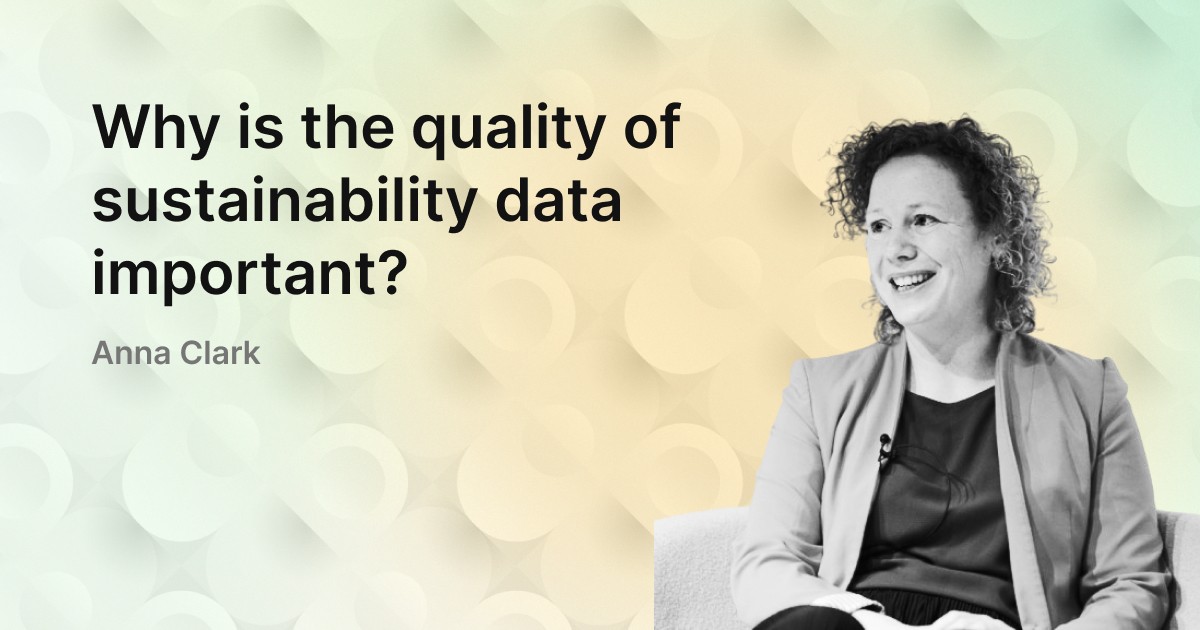Why is the quality of sustainability data important?
Författare
Anna Clark
Senaste ändringar
12 apr. 2024
The need for sustainability data - understanding impact
To truly understand a company's impact on the environment and society, high-quality data is indispensable. Accurate sustainability data allows organisations to set meaningful targets as well as measure and follow-up their performance against goals and commitments.
Without reliable data, companies cannot identify in which direction they should work in nor where they are falling short or excelling. Although this is well recognised in terms of standard (economic) business metrics, the same rigour is often not applied to sustainability data.
At the end of the day, the right data is the basis for implementing meaningful changes. Robust data allows organisations to pinpoint specific areas that need improvement (or where they are performing well) and track their progress over time.
CSRD - Auditing sustainability data like financial data
On top of the need to have good data to identify the right measures, there is also a legislative requirement. In Europe, the EU Corporate Sustainability Reporting Directive (CSRD) is a game-changer in how businesses need to report sustainability data. Similar legislation is on its way for small and medium-sized enterprises (SMEs).
The CSRD raises the status of sustainability reporting, requiring it to be on par with financial reporting, meaning that it will be scrutinised for its accuracy, reliability, and origin (transparency). Auditors will audit sustainability reports in a similar way to financial reports, making it crucial to trust the data you report.
How to ensure data quality?
It’s impossible to be an expert in all types of data and data collection methodologies. The rapid generation of new data from connected devices adds to the challenge, making it difficult to ensure data accuracy and reliability from these data sources.
For example, travel survey data has traditionally been collected via questionnaires based on tried-and-tested survey methods. While there is bias in the data, it is generally known and manageable. New data sources — such as mobile network data showing the movements of individual mobile phones — offer potential insights into travel behaviour but come with significant pitfalls, such as difficulties in understanding travel details, lack of information on the individual travelling and lack of understanding of biases in the data.
Ensuring quality in sustainability data often requires the fusion of different methods, combining traditional surveying techniques and statistical methods with modern data science. It is important to include expertise in the subject matter together with the statistical and data engineering expertise, to ensure that the right data is collected and that it answers the right questions.
It is important that the methods used to collect and analyse the data are robust, but also that the results of the data analysis are meaningful. Data quality is ensured by having the right combination of expertise to collect, analyse and quality check (or audit) the data.
Författare
Anna Clark
